Dog breeds have different temperaments when it comes to a lack of attention and activity. While there are canines that can stay calm and don’t mind being couch potatoes, there are dog breeds that easily get bored. When bored, dogs express their frustration in different ways.
If you have an active lifestyle, you should go for active dogs, but if you lack enough time or energy for them, then make your choice carefully. Adventurous and fun-loving pets need enough mental and physical stimulation to stay sharp and content; otherwise, they launch into boredom-driven habits.
Here are 9 active dog breeds more likely to experience boredom easily.
Fun-Loving Dog Breeds that Easily Get Bored
1. Border Collie
Border Collies were originally bred as herding dogs to herd livestock; now they’re one of the most loved family pets. Collies are super smart dogs with high energy levels and need regular exercise and mental stimulation activities.
While they’re gentle pups with a loyal and caring nature, being exceptionally intelligent means they will get bored way too easily. As herding dogs, Border Collies love staying busy and need their pet parents to engage with them.
Border Collies are problem solvers by nature; giving them puzzle toys is a great activity to keep them engaged. Outdoor walks, playing fetch, and agility training are also activities they’ll immensely enjoy.
2. Australian Shepherd
Australian Shepherds are vigorous dogs that need a lot of physical activity and mental exercise to keep them satisfied. They were developed as working dogs to help their owners on farms; getting a job done is second to their nature.
Keeping your Aussie happy means matching its needs with activity and play. You don’t want a bored Aussie; ignoring them for a long duration and not getting them enough exercise and mental stimulation will make them cranky.
Aussies are smart canines and can learn new tricks easily. They can learn to follow complex commands; they’ve fulfilled challenging roles like service dogs and police dogs.
3. German Shepherd
German Shepherds have a fierce and athletic appearance; they give you the impression of high-energy breeds just in one glance. Physical activity matters a lot for these canines; otherwise, they become bored and give their owners a tough time.
As one of the most loyal and dedicated dogs, German Shepherds are the happiest when they’re with you and getting something done. As herding dogs, their drive remains strong to fulfill their duties; it’s important to think of games and activities to prevent boredom in these pups.
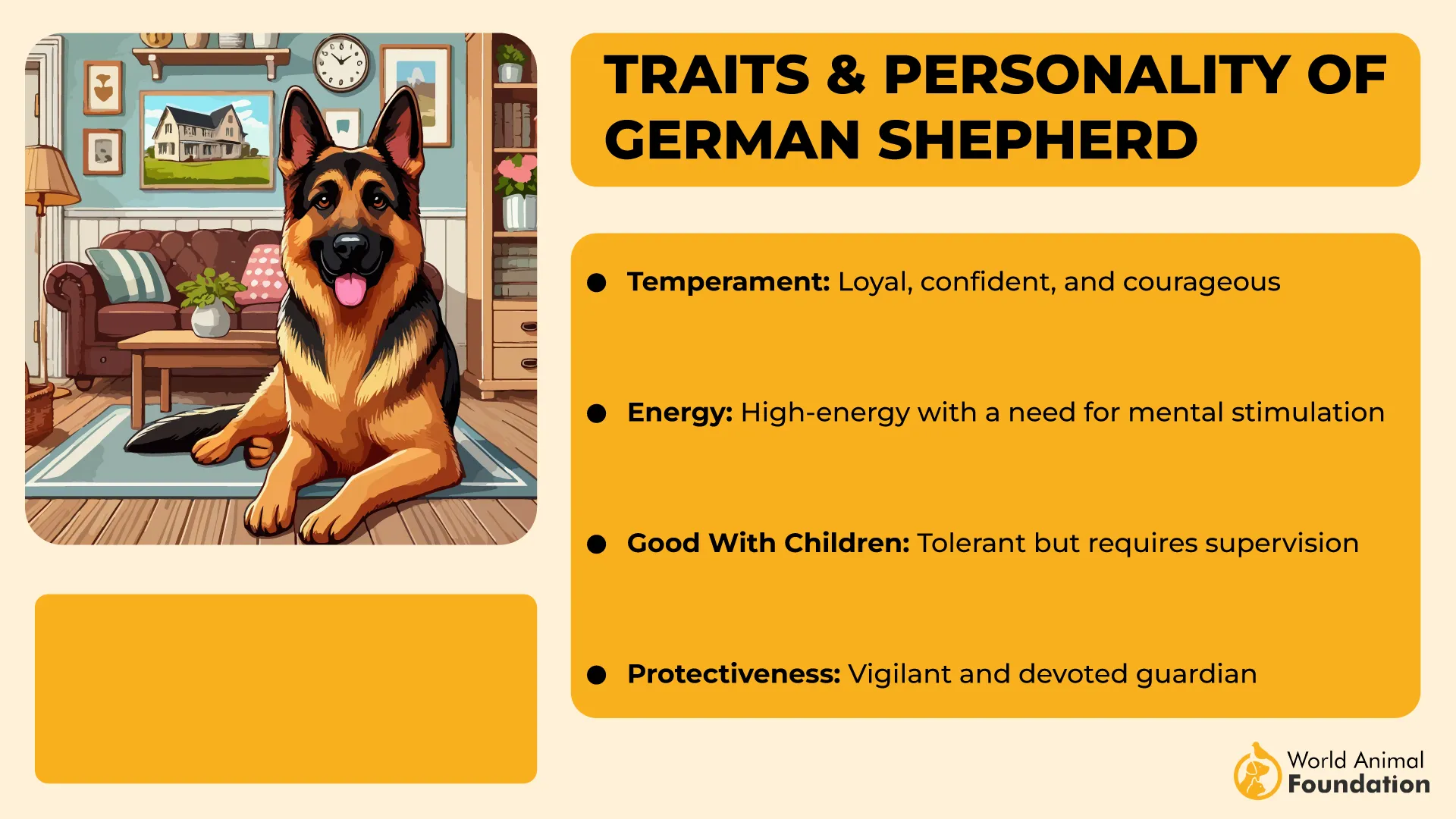
Physical activity keeps these dogs in their best health and saves them from conditions like obesity and heart disease. It also helps them stay balanced in temperament and not fall into anxiety and depression.
4. Jack Russel Terrier
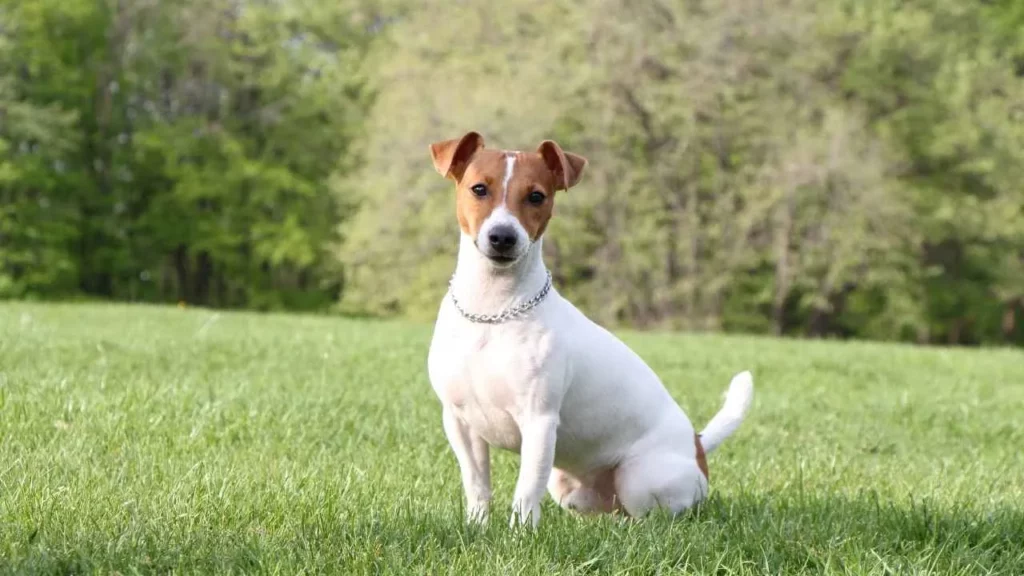
Jack Russel Terriers are small animals with personalities that cannot be ignored. Not a breed that will be intimidated by bigger dogs, Jackies are fearless with a strong sense of self. As energetic and smart pups, they can also get bored pretty quickly.
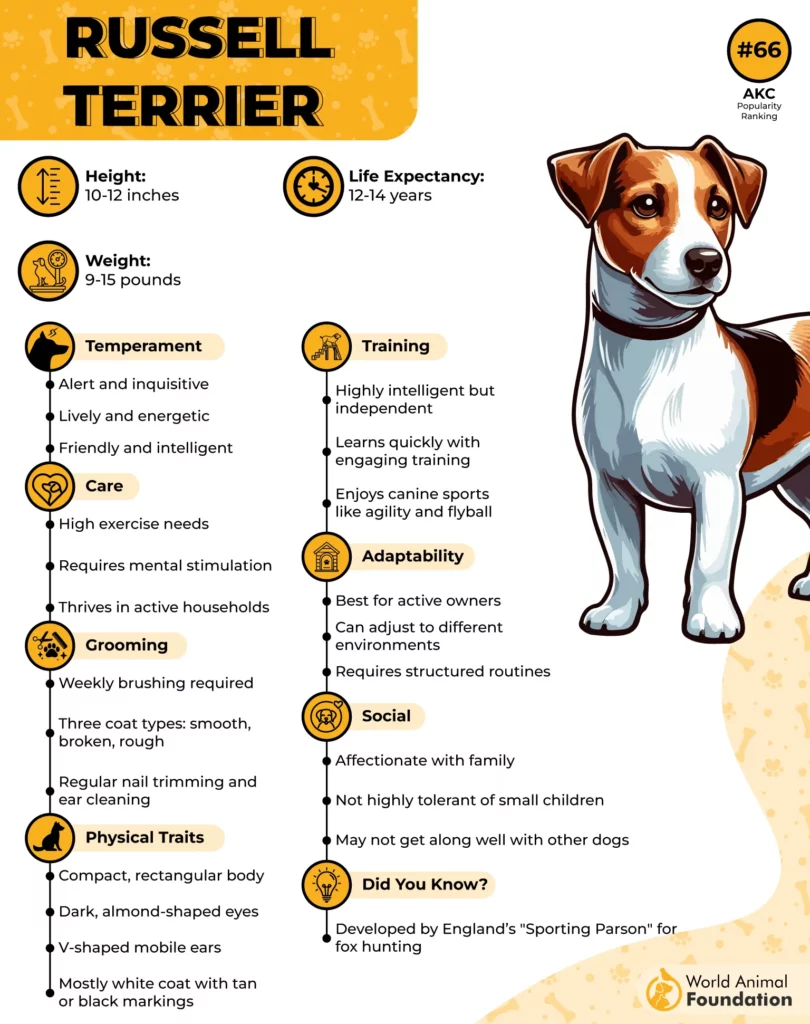
The first thing anyone will notice about these dogs is their liveliness and boundless energy. They were bred to hunt foxes; alertness and sharp thinking are their core traits. Due to their powerful hunting instincts, they do amazingly in dog sports, especially hunting events.
They will hate getting stuck in the same routine and might show some behavioral problems, and might try tactics like digging boxes. WebMD suggests creating varying training sessions and introducing problem-solving games to keep them mentally engaged.
5. Siberian Husky
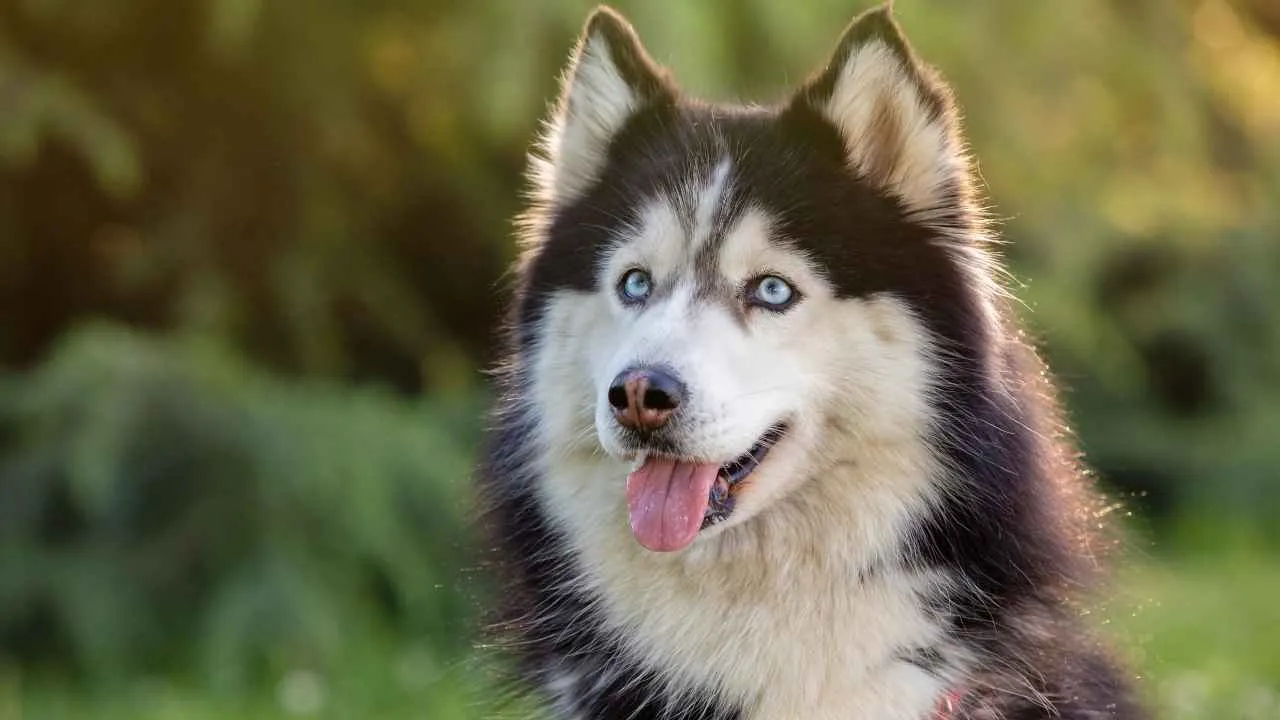
Siberian Huskies are dogs that thrive under the wide skies and frozen climates due to their origins as sled-pulling canines in Siberia. They’re resilient dogs that won’t settle for a sedentary and purposeless lifestyle.
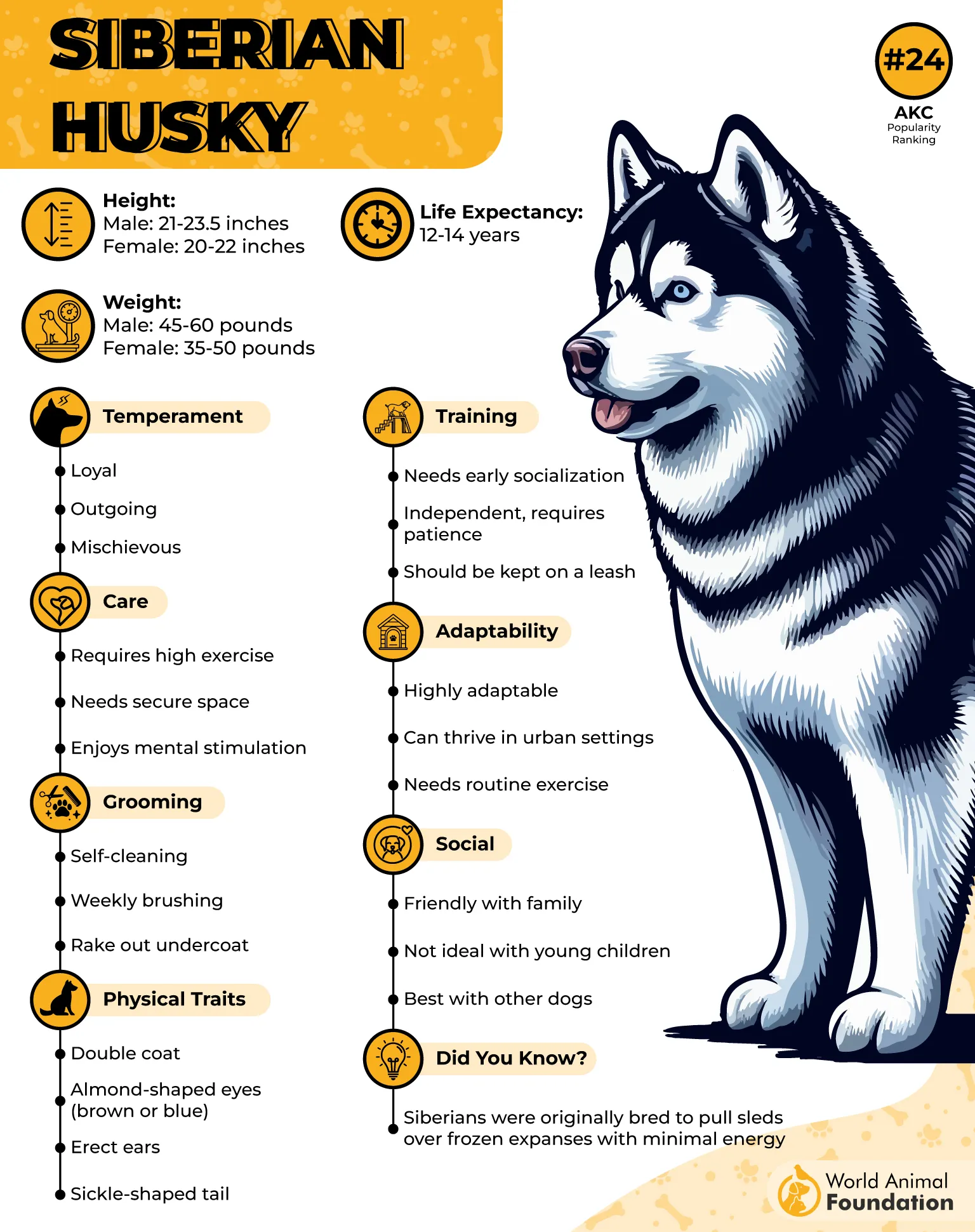
With their wolf-like facial features, thick coat, and affectionate nature, Sibes make wonderful companions and family dogs. They won’t put up with a lazy owner; these high-energy dogs should be paired with an active and experienced human.
Siberian Huskies are better suited for houses with wide fenced yards where they can play openly. They also enjoy outdoor activities, and as incredibly sharp thinkers, will have fun with mental games. It’ll be easier to teach them to be obedient if they’re trained while puppies.
They’re not dogs for tight spaces. According to PetMD, Sibes are very chatty dogs and might not be suitable for homes with shared walls or close-by homes, unless your neighbors enjoy barking and singing of dogs.
6. Doberman Pinscher
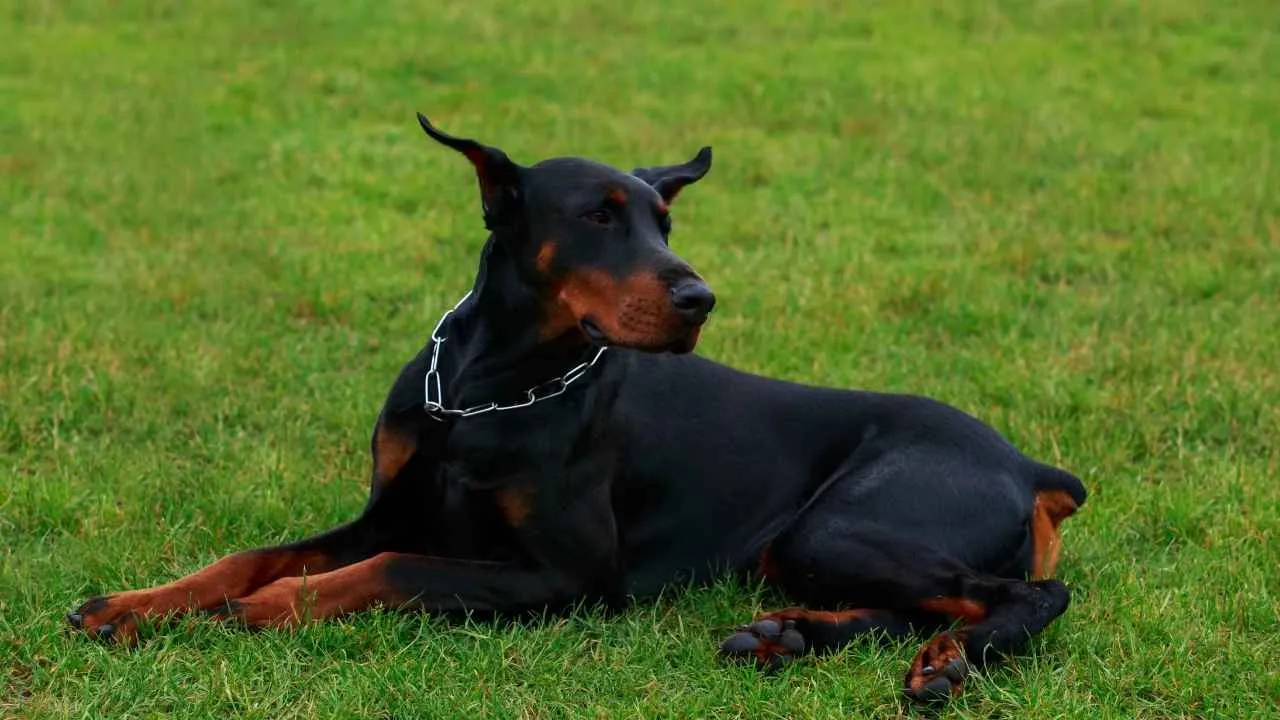
Doberman Pinschers are very loyal and loving dogs with a natural desire to protect their owners and homes. They’re alert in nature and need to stay active with their favorite humans. They can get bored if left to their own devices, causing undesirable behavior from them.
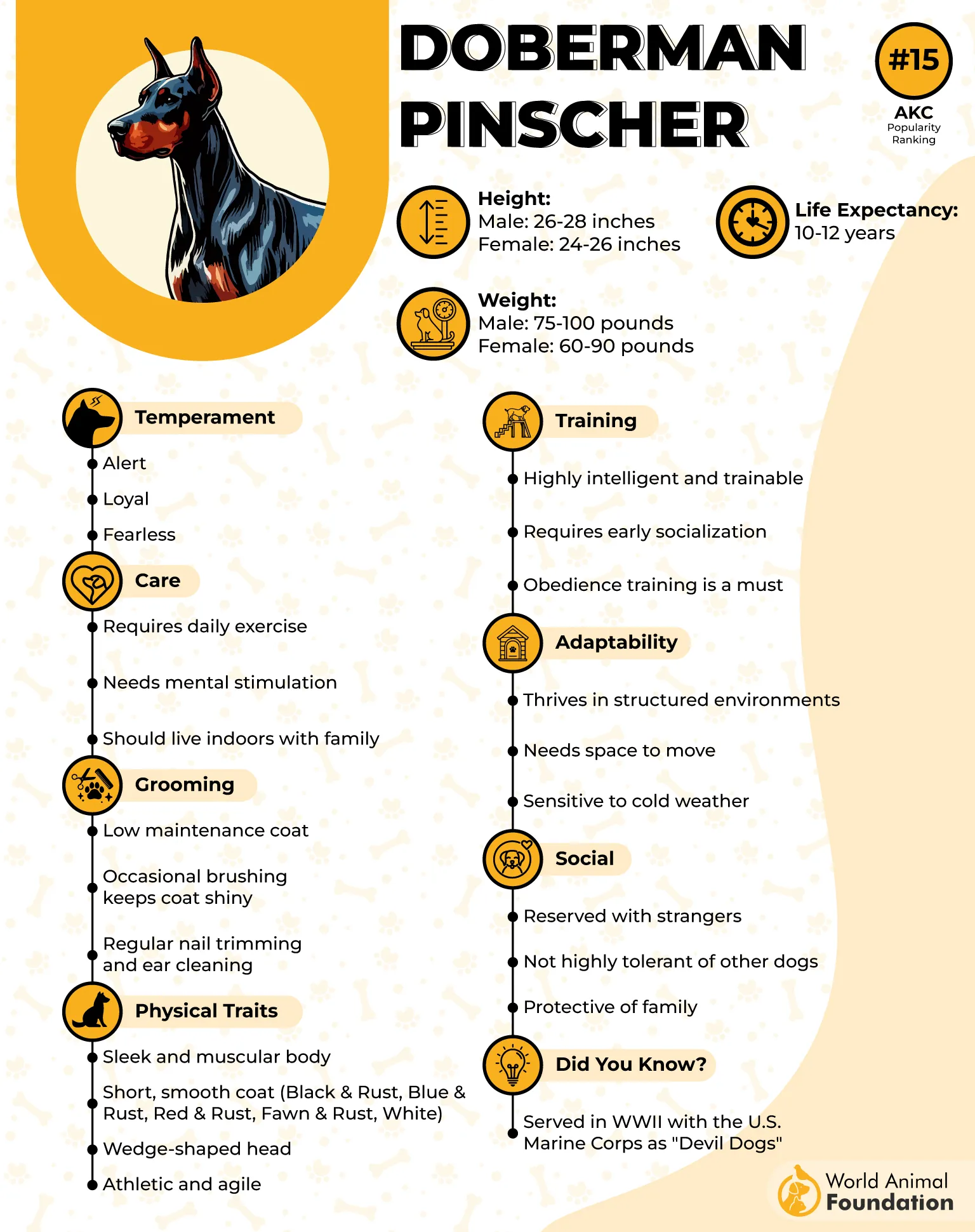
Dobes are “one man dogs” and form a special and close bond with one favorite human. They’re generally gentle in nature but can be aloof towards strangers, though they’re rather calm dogs. They might be able to make new friends more readily if given early socialization training.
Dobies are large dogs and need a lot of walking and running every day. They will also love activities like playing frisbee, agility training, and hide-and-seek.
7. Weimaraner
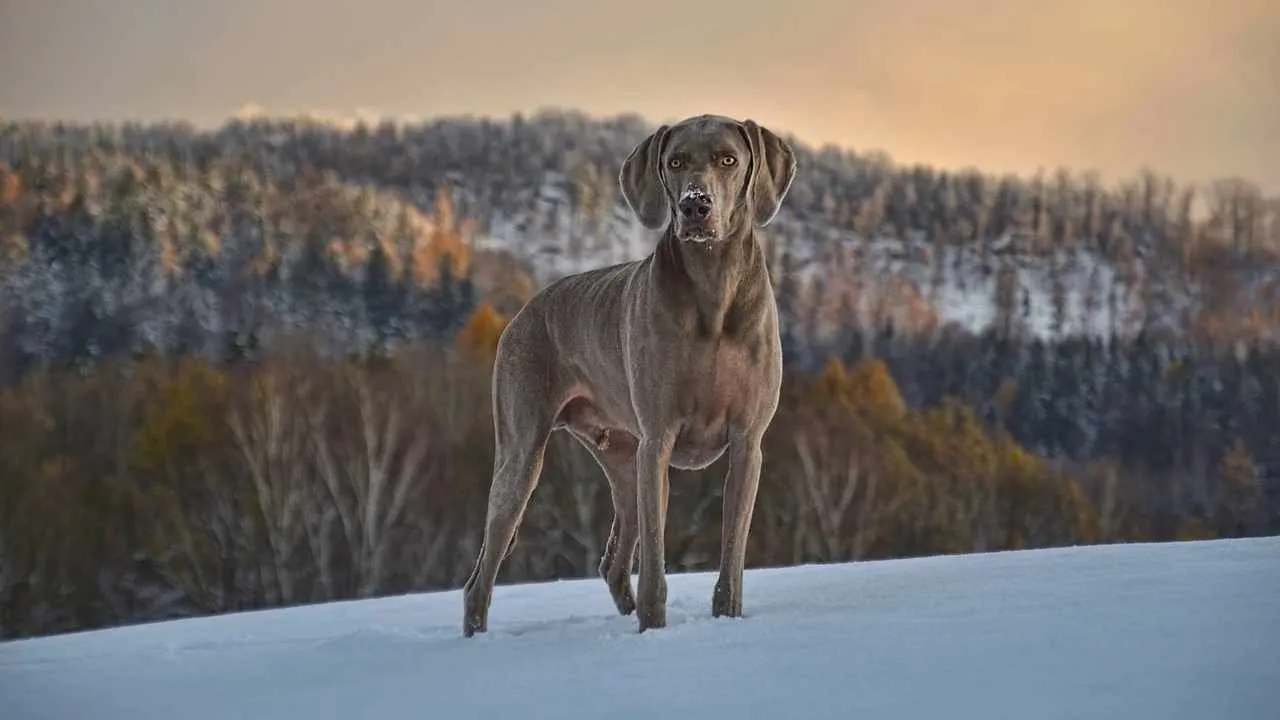
Weimaraners are beautiful dogs loved for their dedicated personality and sleek build. They come in grey or blue coats and are instantly recognizable due to their enchanting appearance. As trainable dogs, they make fantastic companions for experienced owners who can satisfy their activity needs.
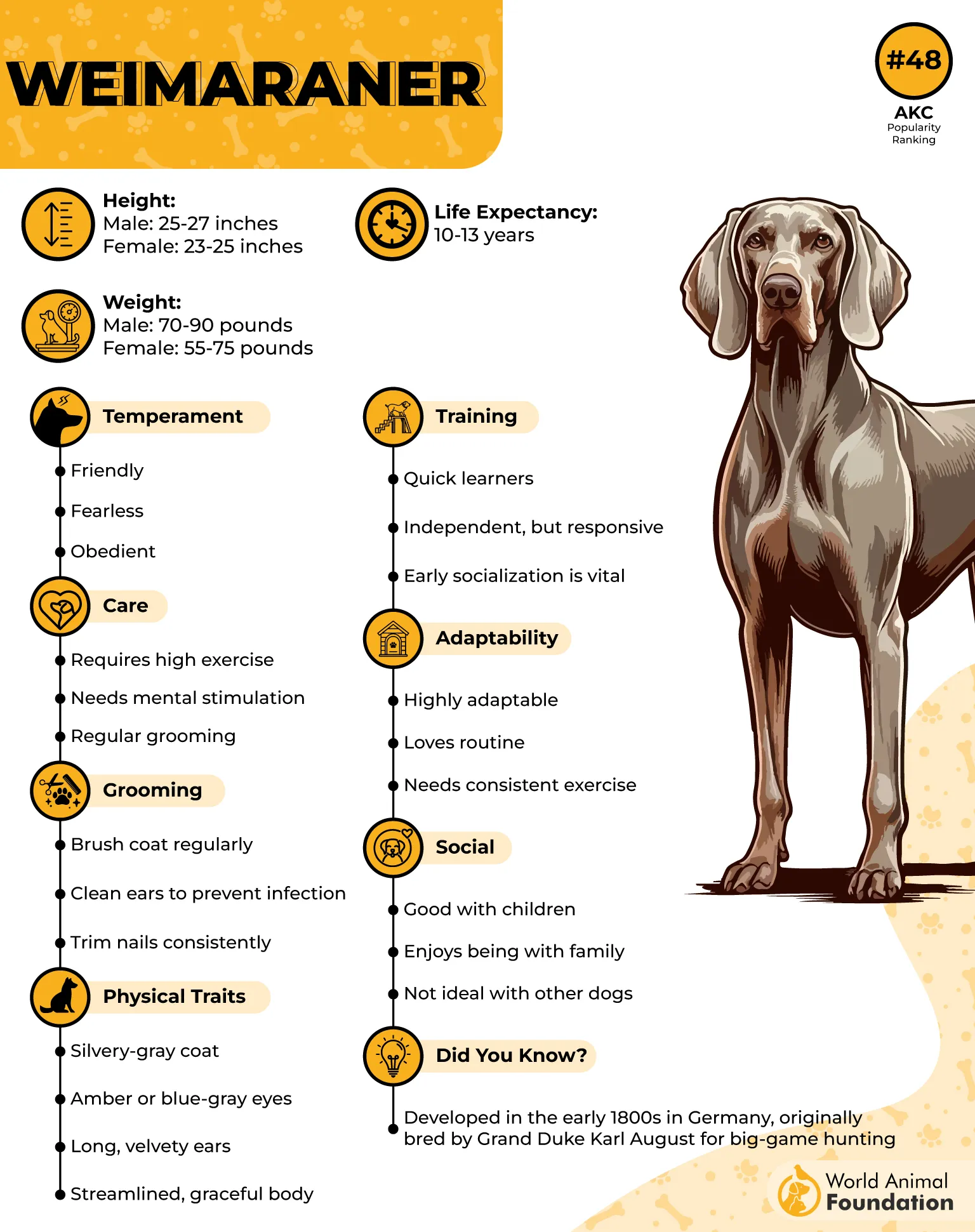
Weimaraners are great with owners who can give them a lot of attention, or they will start experiencing separation anxiety. They also tend to chew and swallow things that are not edible; you’ll need to watch out for that.
It’s better to plan proper activities for them to give them physical and mental stimulation and keep them from boredom. You can teach them new tricks or give them puzzle toys to keep things fun.
8. Dalmatian
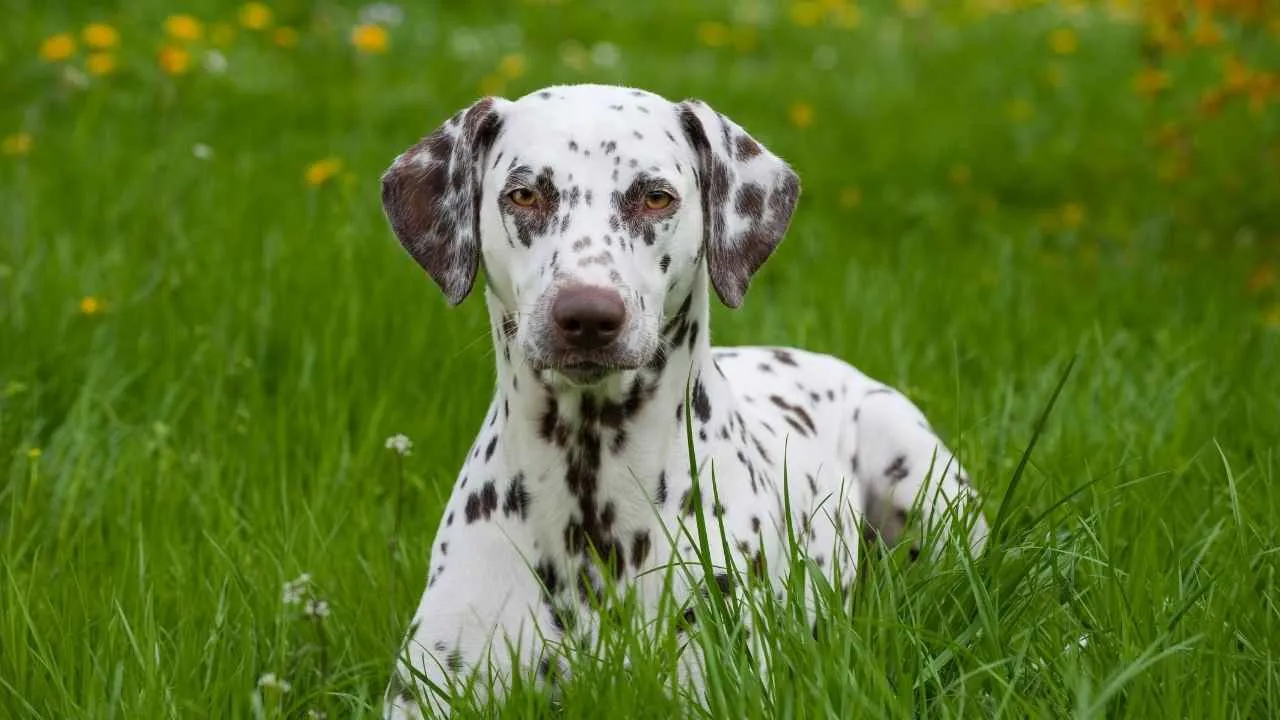
Dalmatians are hardy dogs originally bred to run alongside coaches for long distances. These dogs are just too cute with their smooth, spotted coats and make very friendly companions. They’re prone to boredom due to their high energy levels and need 2+ hours of exercise each day.
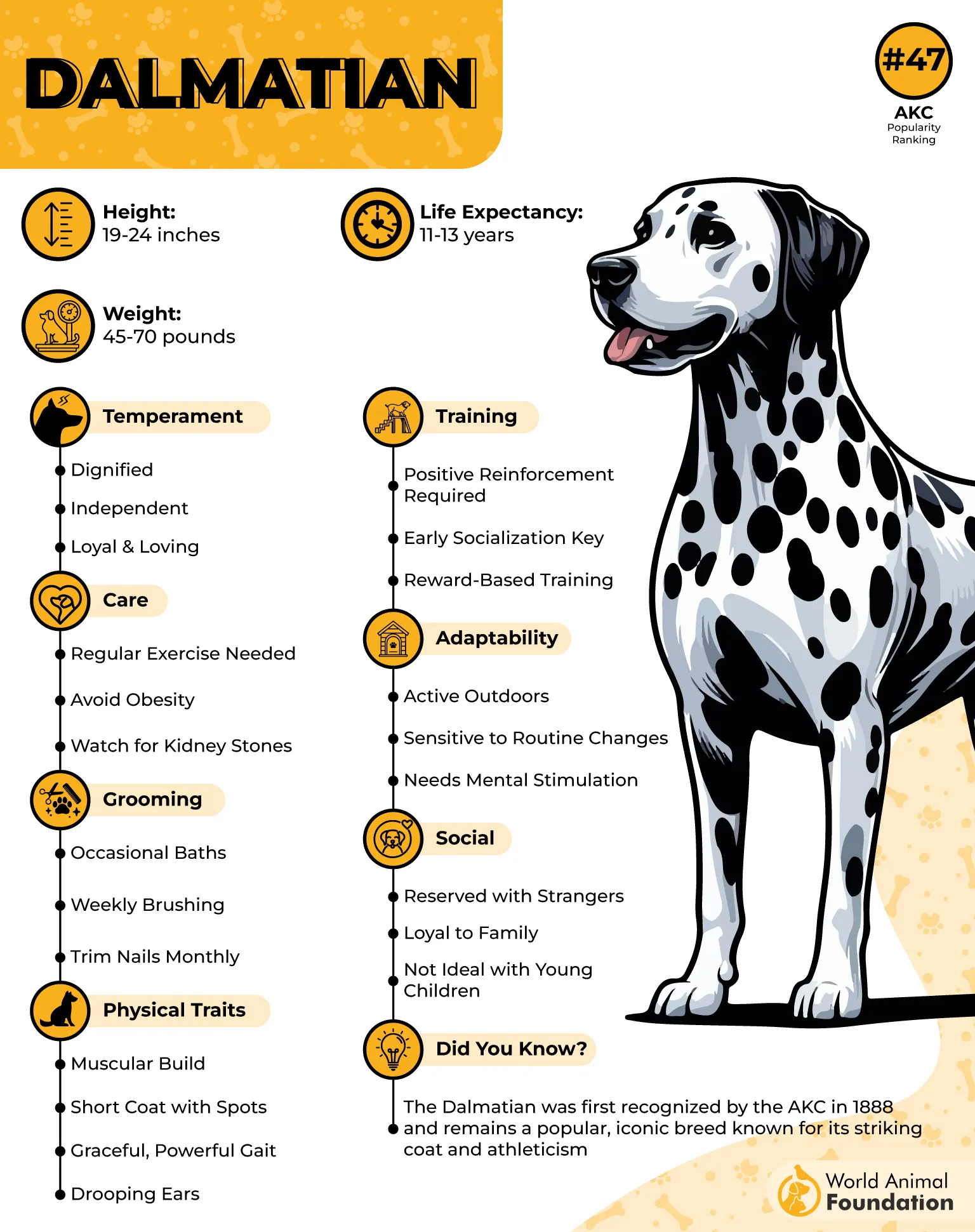
According to the American Kennel Club, it’s important to introduce your Dalmatian puppy to new situations so they’re better able to handle them. They are quite aloof towards strangers but love their families, which makes them decent watchdogs.
If you live in a limited space, make sure to take your Dalmatian out for walks regularly. They love to learn new games and play with puzzle toys; they can also be great ways to keep them from boredom-driven habits.
9. English Springer Spaniel
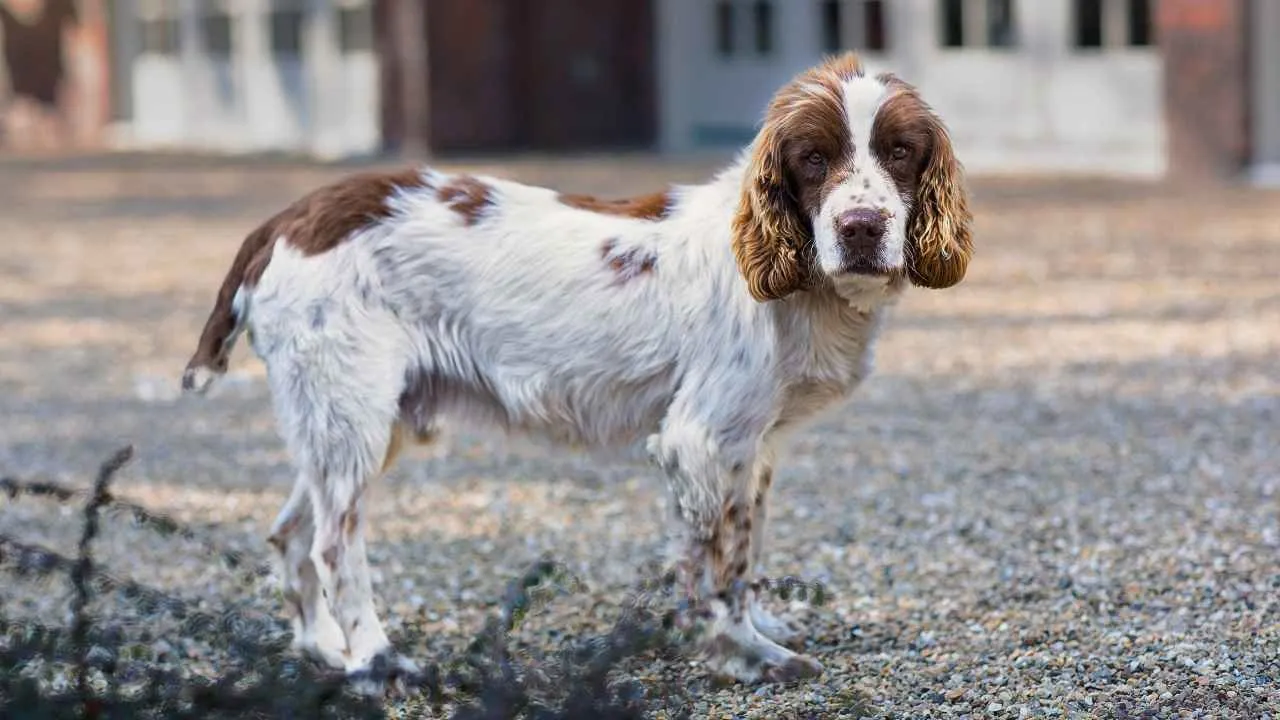
English Springer Spaniels are beautiful, floppy-eared dogs with gorgeous wavy coats and a playful nature. They’re a versatile breed and make great show dogs, amazing family pets, and hunting dogs.
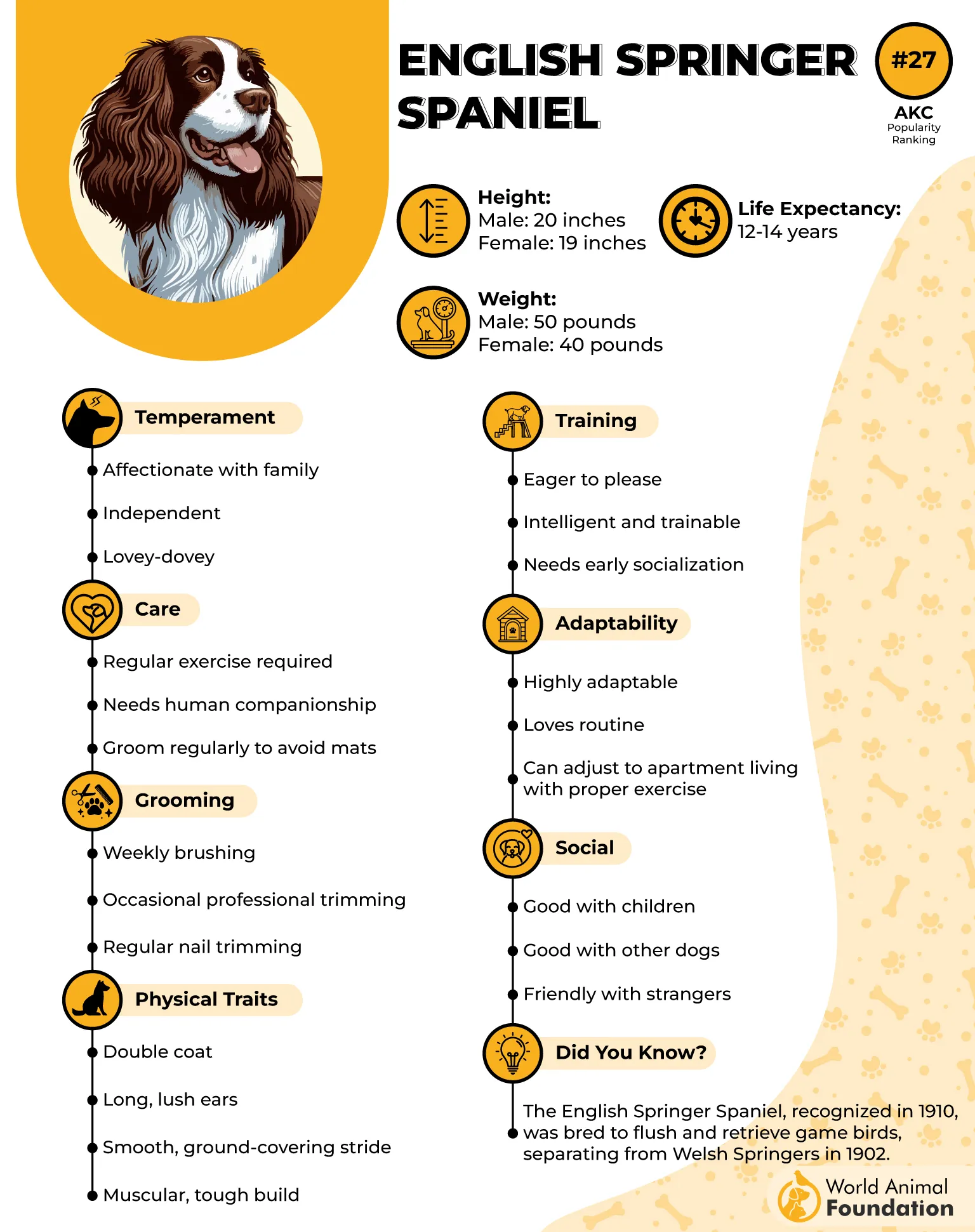
Originally bred as hunting dogs, they were famous for their talent of “springing game”; they’d chase birds into flying towards the hunters. They’re eager to please dogs and love jobs given to them; consistent work strengthens their self-confidence.
Springers are not excessive barkers, but if deprived of attention, they can bark to express their frustration.
Conclusion
Active dog breeds prefer different kinds of activities to stay boredom-free, and it’s crucial to know each breed’s unique needs. While some dogs enjoy playing indoors, others might enjoy hiking and trail running. Scent trails satisfy some dogs, while others will be content playing puzzle games.
Some other dog breeds that need to stay active or else they’ll get bored easily are: Labrador Retriever, Belgian Malinois, and Poodle.


